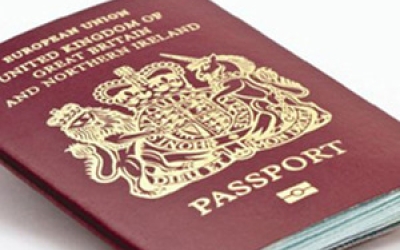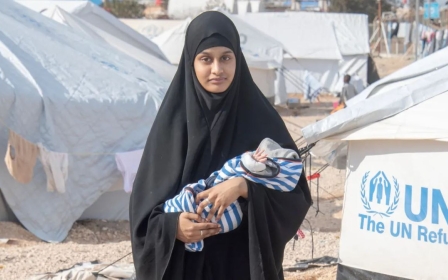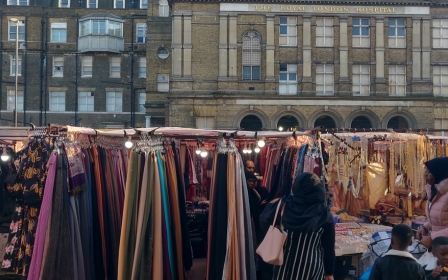Shamima Begum could face torture in Iraq unless UK takes her back, lawyers tell court

The lawyers for Shamima Begum, a British teenager who fled to Islamic State-held terrritory, fear she could be tortured in Iraq if Britain refuses to take her back, a court in London heard on Tuesday.
At the opening of a four-day hearing, her lawyers outlined Begum's appeal against the decision to revoke her citizenship, which they argued was "unlawful" because she was unable to mount an effective appeal from the camp in northern Syria where she is held.
Court papers released by her lawyers stated that Begum, who went to Syria aged 15, is currently being held in the Al-Roj refugee camp in northern Syria, an area that has experienced further instability following Turkey's launch of an incursion into Kurdish-held areas.
The papers also stated that the Kurdish SDF militia which controls Al-Hol have transferred detainees to Iraq where they could "face torture and unfair trials resulting in the death penalty".
At the start of the hearing at the Special Immigration Appeals Commission (SIAC), Tom Hickman, the lawyer representing Begum, said that the Home Office had claimed that the Al-Roj refugee camp where Begum is held is "unguarded and any detainees are free to leave".
Stay informed with MEE's newsletters
Sign up to get the latest alerts, insights and analysis, starting with Turkey Unpacked
The UK and citizenship-stripping powers
+ Show - HideThe UK has been described by researchers as a “global leader in using citizenship deprivation as a counterterrorism measure”.
Historic citizenship-stripping powers targeted at naturalised citizens on disloyalty grounds had largely fallen into disuse prior to 2002, when the government introduced new measures in an attempt to revoke the citizenship of Abu Hamza, an Egyptian-born cleric subsequently convicted of terrorism in the US.
The 2002 legislation allowed for British-born nationals as well as naturalised citizens to lose their nationality rights. Successive governments gradually broadened the scope of the powers so that home secretaries can now deprive anyone of citizenship if they are satisfied that doing so is “conducive to the public good” and would not leave an individual stateless.
No criminal conviction is required. Letters often state that individuals have been assessed as presenting “a risk to the national security of the United Kingdom”.
The government’s use of the powers surged to unprecedented levels in response to the perceived threat posed by British nationals returning from Syria.
Between 2010 and 2015, 33 people were stripped of their citizenship, according to Home Office figures. In 2016, 14 people were deprived, and in 2017 the number jumped to 104.
In 2018, the figure was 21, and in in 2019 - when Shamima Begum was among those targeted - it was 27. It then dropped to ten in 2020 and eight in 2021.
Some subjects of citizenship-stripping orders argue that they have been left effectively stateless, because the government bases its assessment that they are dual nationals on a right of citizenship to a parent’s country of birth, even if they have never taken up that citizenship or even visited the country.
In some cases the Special Immigration Appeals Commission, which rules on citizenship cases, has agreed: it has ruled in favour of British nationals of Bangladeshi descent on the grounds that Bangladesh does not consider them citizens if they have not claimed Bangladeshi nationality before the age of 21.
Human rights organisations and lawyers have compared the powers to “medieval exile and banishment”. Critics also point out that the powers create a two-tier system in which only those deemed to be dual nationals are at risk of losing their British citizenship; a measure that discriminates against naturalised citizens, immigrants and their children.
"[The Home Office] expressed the view or the assessment that Camp al-Roj is likely to be unguarded and any detainees are free to leave, without reference to any corroborating material," Hickman told the court.
"As far as we are aware nothing material has changed at al-Roj, albeit that the environment there is incredibly fragile and dangerous."
Begum's lawyers told the court that the case was unlawful because the now-20-year-old has no ability to communicate with her lawyers, receive confidential advice from them, or give her own evidence live or by video link.
"The deprivation order is unlawful where there cannot be an effective appeal: Parliament cannot have intended that the Secretary of State could take away a person's citizenship in circumstances where the appeal right which parliament has bestowed cannot be fairly or effectively exercised," her lawyers said.
The Home Office did not make their skeleton argument for the SIAC proceedings immediately available at the time of writing.
'Hanged' if sent back to Bangladesh
Begum absconded to Islamic State-held Syria in 2015 with Kadiza Sultana and Amira Abase, two other schoolgirls who are both believed to be dead.
She was stripped of her citizenship in February 2019 after being found in a camp for IS detainees by a journalist for the Times newspaper.
While being held in captivity by Kurdish forces, her newborn son Jarrah died, three weeks after she gave birth to him. Prior to Jarrah's birth, Begum also gave birth to two other children in Syria who both also died.
Begum's case and the death of her son have cast scrutiny over the British government's policies towards UK nationals and their offspring stranded in Syria.
It is believed that the former home secretary, Sajid Javid, made his decision on the basis that Begum was eligible for Bangladeshi citizenship because of her parent's heritage.
Begum's lawyers told the court on Tuesday that there was no evidence that she had ever applied for Bangladeshi citizenship or visited the country.
Bangladesh's nationality laws say that any individual who has parents with Bangladeshi citizenship is also automatically entitled to citizenship.
The law, however, states that this entitlement expires if the individual has not claimed it before the age of 21.
Earlier this year, Bangladesh's foreign minister said that Begum could be "hanged" and face capital punishment if taken back to Bangladesh.
Speaking to ITV News, Bangladesh's minister of foreign affairs, Abul Kalam Abdul Momen, reaffirmed Dhaka's stance that Begum was not a Bangladeshi citizen.
Begum is among dozens of British nationals who have been stripped of citizenship because of security concerns surrounding the perceived threat posed by returnees from Syria.
Last year, judges at SIAC ruled that the British government had wrongly determined that two British men of Bangladeshi descent were Bangladeshi nationals and ordered their citizenship to be restored. The government is appealing those cases.
Middle East Eye delivers independent and unrivalled coverage and analysis of the Middle East, North Africa and beyond. To learn more about republishing this content and the associated fees, please fill out this form. More about MEE can be found here.






